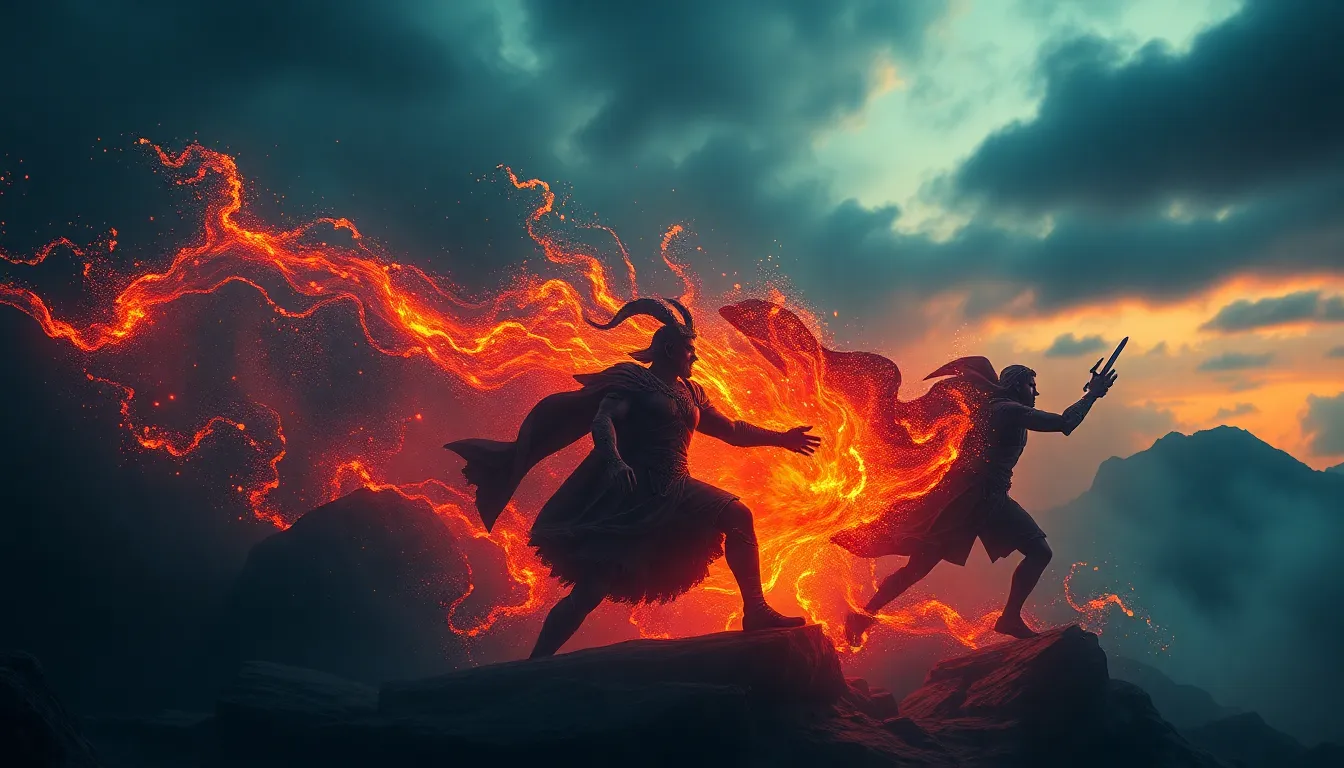The Ultimate Collection: 7 Mythological Weapons You Wish Were Real!
I. Introduction
The allure of mythological weapons in culture and storytelling has fascinated humanity for centuries. These legendary artifacts often symbolize not just power and strength, but also the deep-rooted beliefs and values of the cultures from which they originate. From epic quests to heroic battles, these weapons serve as pivotal elements in their respective narratives, embodying the hopes and fears of those who wield them.
In this article, we will explore seven legendary weapons, each with its unique attributes and significance in mythology. These weapons have transcended their tales, becoming icons that continue to inspire art, literature, and popular culture.
II. Excalibur: The Sword of Destiny
Excalibur is perhaps one of the most famous mythological weapons, closely associated with the legendary King Arthur. Its origins are steeped in mystique, with various accounts suggesting that it was either given to Arthur by the Lady of the Lake or that it was pulled from a stone, marking him as the rightful king.
The powers attributed to Excalibur are immense. It is said to grant invincibility to its wielder and can cut through anything. The sword also carries the weight of destiny, symbolizing rightful sovereignty and the divine right to rule.
The cultural impact of Excalibur is profound, appearing in numerous adaptations of Arthurian legends across literature, theater, and film. From T.H. White’s “The Once and Future King” to the animated classic “The Sword in the Stone,” Excalibur remains a potent symbol of heroism and righteousness.
III. Mjölnir: Thor’s Hammer
In Norse mythology, Mjölnir is the mighty hammer wielded by Thor, the god of thunder. According to legend, it was forged by dwarven brothers Sindri and Brokkr, and is renowned for its incredible power and durability.
Mjölnir possesses several formidable abilities, including the manipulation of weather—summoning storms and lightning. Furthermore, it is said that only those deemed worthy can lift the hammer, making it a symbol of honor and bravery.
In modern pop culture, Mjölnir has gained immense popularity, especially within the Marvel Universe. Thor’s adventures, both in comic books and films, have introduced Mjölnir to new generations, cementing its status as a legendary weapon that embodies strength and heroism.
IV. The Spear of Destiny: A Weapon of Power
The Spear of Destiny, also known as the Holy Lance, is steeped in both historical and mythological significance. It is believed to be the spear that pierced the side of Jesus Christ during the Crucifixion, and thus, it carries immense religious weight.
Legends surrounding the Spear of Destiny suggest that it grants its wielder unparalleled power and the ability to control the fate of nations. Throughout history, many leaders and conquerors have sought the spear, believing it could provide them with victory in battle.
The spear has appeared in various religious and cultural narratives, often symbolizing divine authority and the connection between heaven and earth. Its mystique continues to captivate the imagination of historians and storytellers alike.
V. The Bow of Artemis: The Huntress’s Precision
The Bow of Artemis is a significant artifact in Greek mythology, associated with Artemis, the goddess of the hunt, wilderness, and childbirth. This bow is not only a tool for hunting but also a symbol of independence and strength.
Artemis’s bow is renowned for its unmatched accuracy and the ability to strike down prey from great distances. It is often depicted as a gift from the gods, imbued with divine assistance, ensuring that no arrow misses its target.
The influence of Artemis and her bow extends into modern storytelling, appearing in various adaptations, including adaptations of Greek myths and popular media like the “Hunger Games” series, where archery plays a crucial role in the protagonist’s journey.
VI. Gáe Bulg: The Cursed Spear of Cú Chulainn
Gáe Bulg is a fearsome weapon from Irish mythology, associated with the legendary hero Cú Chulainn. Its origins are filled with magic and intrigue, said to be a spear that causes immense destruction upon impact.
The unique characteristics of Gáe Bulg are matched by its curse. It is said that only Cú Chulainn could wield it effectively, and that its use would lead to inevitable tragedy—symbolizing the bittersweet nature of heroism.
The spear’s impact on Cú Chulainn’s legend is significant, as it represents both his unparalleled martial prowess and the tragic fate that befell him. Gáe Bulg remains a powerful symbol in Irish folklore, encapsulating themes of glory and doom.
VII. The Golden Fleece: A Symbol of Power
The myth of the Golden Fleece revolves around the quest of Jason and the Argonauts, who sought this mythical artifact to reclaim Jason’s throne. The fleece is not merely a golden artifact; it symbolizes kingship and authority.
Its magical properties are said to grant prosperity and protection to its possessor, making it a coveted prize throughout the ages. The quest for the Golden Fleece serves as a backdrop for themes of adventure, betrayal, and heroism in ancient tales.
The legacy of the Golden Fleece continues in both ancient and modern narratives, inspiring countless stories of adventure and quests, illustrating the timeless allure of mythological treasures.
VIII. The Trident of Poseidon: Ruler of the Seas
Poseidon’s Trident is a powerful symbol in Greek mythology, representing the god of the sea’s dominion over oceans and earthquakes. Crafted by the Cyclopes, this three-pronged spear is imbued with immense power and authority.
The Trident allows Poseidon to control the oceans, summon storms, and even create earthquakes, making it one of the most significant weapons in mythological lore. It embodies the duality of creation and destruction, reflecting the unpredictable nature of the sea.
The Trident’s significance extends into modern pop culture, appearing in various films, literature, and artistic representations, reaffirming Poseidon’s status as a formidable deity of ancient mythology.



